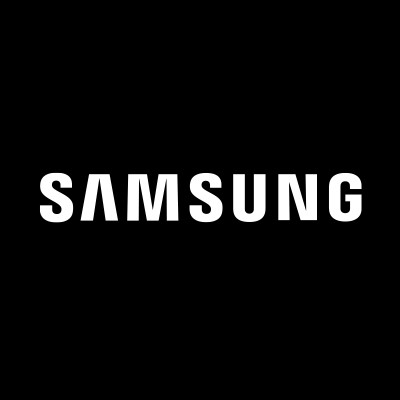Indonesia's Smartphone Showdown: Google Pixel and iPhone 16 Face Ban
November 1, 2024, 10:25 pm

Location: United States, California, San Francisco
Employees: 10001+
Founded date: 1938
Total raised: $6.4B
Google
Location: United States, New York
In a bold move, Indonesia has tightened its grip on the smartphone market. The government has banned the sale of Google Pixel phones, citing a failure to comply with local investment regulations. This decision comes hot on the heels of a similar ban on Apple's iPhone 16. The message is clear: play by Indonesia's rules or face the consequences.
The Indonesian Ministry of Industry has set a stringent requirement. Smartphones must contain at least 40% local components. This rule aims to boost domestic manufacturing and ensure that foreign tech giants contribute to the local economy. It’s a call to arms for companies like Google and Apple. They must adapt or risk losing access to a lucrative market.
The stakes are high. Indonesia is Southeast Asia's largest economy, with a youthful population eager for the latest technology. Over 100 million people under 30 are potential customers. Yet, despite this vast market, Google and Apple are not among the top five smartphone brands in the country. That title belongs to Xiaomi, Oppo, Vivo, Samsung, and Realme. These companies have already embraced local production, aligning with the government's vision.
The ban on Google Pixel phones is not just a regulatory hurdle. It’s a wake-up call. Google has reportedly imported around 22,000 Pixel devices into Indonesia this year. But without the necessary TKDN certificate, these devices cannot be sold. The government’s stance is firm: compliance is non-negotiable.
Apple finds itself in a similar predicament. The iPhone 16 is also on the banned list. Apple must fulfill investment commitments totaling $15.3 million to regain access to the market. This requirement is part of a broader strategy to ensure that foreign companies invest in local innovation and development. Apple has no official store in Indonesia, but CEO Tim Cook's visit earlier this year signals the company's interest in the market. However, interest alone won’t suffice.
The bans reflect a growing trend in Indonesia. The government is leveraging its market power to demand more from foreign tech companies. It’s a strategic move to foster local industry and create a level playing field. Companies like Samsung and Xiaomi have already set up manufacturing facilities in Indonesia. They are reaping the rewards of compliance, while Google and Apple are left on the sidelines.
This situation raises questions about the future of foreign investment in Indonesia. Will companies adapt to the new rules, or will they withdraw from the market? The answer remains uncertain. The Indonesian government is determined to protect its interests. It wants to ensure that foreign companies contribute to the local economy, not just profit from it.
The bans also highlight the complexities of global trade. As countries seek to protect their markets, foreign companies must navigate a maze of regulations. For tech giants, this means balancing innovation with compliance. It’s a delicate dance, and missteps can lead to significant losses.
The smartphone market in Indonesia is fiercely competitive. Local brands have established a strong foothold, making it difficult for newcomers to break in. The government’s regulations only add to the challenge. Companies must not only meet local sourcing requirements but also compete with established players who understand the market dynamics.
As the dust settles, the impact of these bans will become clearer. Will Google and Apple rise to the challenge? Or will they retreat from a market that holds immense potential? The answers will shape the future of technology in Indonesia.
In the meantime, consumers are left in limbo. They may have to wait longer for the latest devices from their favorite brands. The bans have created a vacuum, leaving room for local brands to fill the gap. This could lead to a shift in consumer preferences, as people turn to alternatives that comply with local regulations.
The Indonesian government’s approach is not without its critics. Some argue that these regulations stifle competition and innovation. Others believe they are necessary to protect local industries. The debate continues, but one thing is certain: the landscape of the smartphone market in Indonesia is changing.
In conclusion, Indonesia's ban on Google Pixel and iPhone 16 sales is a significant development in the tech world. It underscores the importance of local compliance and investment. As foreign companies navigate these challenges, the future of the smartphone market in Indonesia hangs in the balance. Will they adapt, or will they be left behind? Only time will tell.
The Indonesian Ministry of Industry has set a stringent requirement. Smartphones must contain at least 40% local components. This rule aims to boost domestic manufacturing and ensure that foreign tech giants contribute to the local economy. It’s a call to arms for companies like Google and Apple. They must adapt or risk losing access to a lucrative market.
The stakes are high. Indonesia is Southeast Asia's largest economy, with a youthful population eager for the latest technology. Over 100 million people under 30 are potential customers. Yet, despite this vast market, Google and Apple are not among the top five smartphone brands in the country. That title belongs to Xiaomi, Oppo, Vivo, Samsung, and Realme. These companies have already embraced local production, aligning with the government's vision.
The ban on Google Pixel phones is not just a regulatory hurdle. It’s a wake-up call. Google has reportedly imported around 22,000 Pixel devices into Indonesia this year. But without the necessary TKDN certificate, these devices cannot be sold. The government’s stance is firm: compliance is non-negotiable.
Apple finds itself in a similar predicament. The iPhone 16 is also on the banned list. Apple must fulfill investment commitments totaling $15.3 million to regain access to the market. This requirement is part of a broader strategy to ensure that foreign companies invest in local innovation and development. Apple has no official store in Indonesia, but CEO Tim Cook's visit earlier this year signals the company's interest in the market. However, interest alone won’t suffice.
The bans reflect a growing trend in Indonesia. The government is leveraging its market power to demand more from foreign tech companies. It’s a strategic move to foster local industry and create a level playing field. Companies like Samsung and Xiaomi have already set up manufacturing facilities in Indonesia. They are reaping the rewards of compliance, while Google and Apple are left on the sidelines.
This situation raises questions about the future of foreign investment in Indonesia. Will companies adapt to the new rules, or will they withdraw from the market? The answer remains uncertain. The Indonesian government is determined to protect its interests. It wants to ensure that foreign companies contribute to the local economy, not just profit from it.
The bans also highlight the complexities of global trade. As countries seek to protect their markets, foreign companies must navigate a maze of regulations. For tech giants, this means balancing innovation with compliance. It’s a delicate dance, and missteps can lead to significant losses.
The smartphone market in Indonesia is fiercely competitive. Local brands have established a strong foothold, making it difficult for newcomers to break in. The government’s regulations only add to the challenge. Companies must not only meet local sourcing requirements but also compete with established players who understand the market dynamics.
As the dust settles, the impact of these bans will become clearer. Will Google and Apple rise to the challenge? Or will they retreat from a market that holds immense potential? The answers will shape the future of technology in Indonesia.
In the meantime, consumers are left in limbo. They may have to wait longer for the latest devices from their favorite brands. The bans have created a vacuum, leaving room for local brands to fill the gap. This could lead to a shift in consumer preferences, as people turn to alternatives that comply with local regulations.
The Indonesian government’s approach is not without its critics. Some argue that these regulations stifle competition and innovation. Others believe they are necessary to protect local industries. The debate continues, but one thing is certain: the landscape of the smartphone market in Indonesia is changing.
In conclusion, Indonesia's ban on Google Pixel and iPhone 16 sales is a significant development in the tech world. It underscores the importance of local compliance and investment. As foreign companies navigate these challenges, the future of the smartphone market in Indonesia hangs in the balance. Will they adapt, or will they be left behind? Only time will tell.

